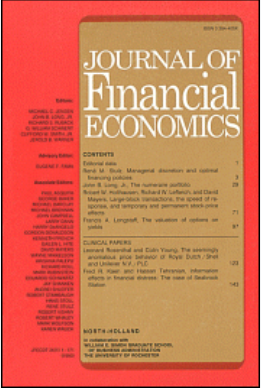Crowdsourcing peer information to change spending behavior
IF 10.4
1区 经济学
Q1 BUSINESS, FINANCE
引用次数: 0
Abstract
We isolate the information channel of peer effects in consumption in a setting that excludes a role for common shocks or social pressure—a spending panel paired with crowdsourced information about anonymous “peers” elicited at different times. Consumers converge to peers’ spending, and more so when peer signals are more informative. Convergence is asymmetric: within 12 months of information provision, overspenders close 17% and underspenders 5% of their gap relative to peers. We exploit the quasi-random assignment to peer groups in an instrumental-variable strategy and implement an experiment for external validity. Our results are consistent with information-based theories of overconsumption.
众包同行信息,改变消费行为
我们在排除共同冲击或社会压力的情况下,分离了消费中同伴效应的信息渠道--消费面板与在不同时间获得的匿名 "同伴 "众包信息配对。消费者的消费趋同于同伴的消费,当同伴的消费信号信息量更大时,趋同程度更高。趋同是不对称的:在提供信息后的 12 个月内,超支者缩小了与同龄人 17% 的差距,而支出不足者缩小了 5% 的差距。我们利用准随机分配到同龄人群体的工具变量策略,并实施了一项外部有效性实验。我们的研究结果与基于信息的过度消费理论是一致的。
本文章由计算机程序翻译,如有差异,请以英文原文为准。
求助全文
约1分钟内获得全文
求助全文
来源期刊

Journal of Financial Economics
Multiple-
CiteScore
15.80
自引率
4.50%
发文量
192
审稿时长
37 days
期刊介绍:
The Journal of Financial Economics provides a specialized forum for the publication of research in the area of financial economics and the theory of the firm, placing primary emphasis on the highest quality analytical, empirical, and clinical contributions in the following major areas: capital markets, financial institutions, corporate finance, corporate governance, and the economics of organizations.
 求助内容:
求助内容: 应助结果提醒方式:
应助结果提醒方式:


